
Program
Keynote Speakers
Reclaiming public values in the internet
Reclaiming public values in the internet
In her keynote, Marleen will explain how Waag’s model of the Public Stack) proposes an alternative way of designing and developing technology. Public Stack advocates for a design of technology with the interests of the public in mind. She will show how the program has been developed over the course of the last four years, and how Waag and its partners apply the model and spread free software awareness in various sectors, including health, media, and government. From building the capacities of citizens, developing critical maker education and the development of data commons and ethical tech like Fairphone.
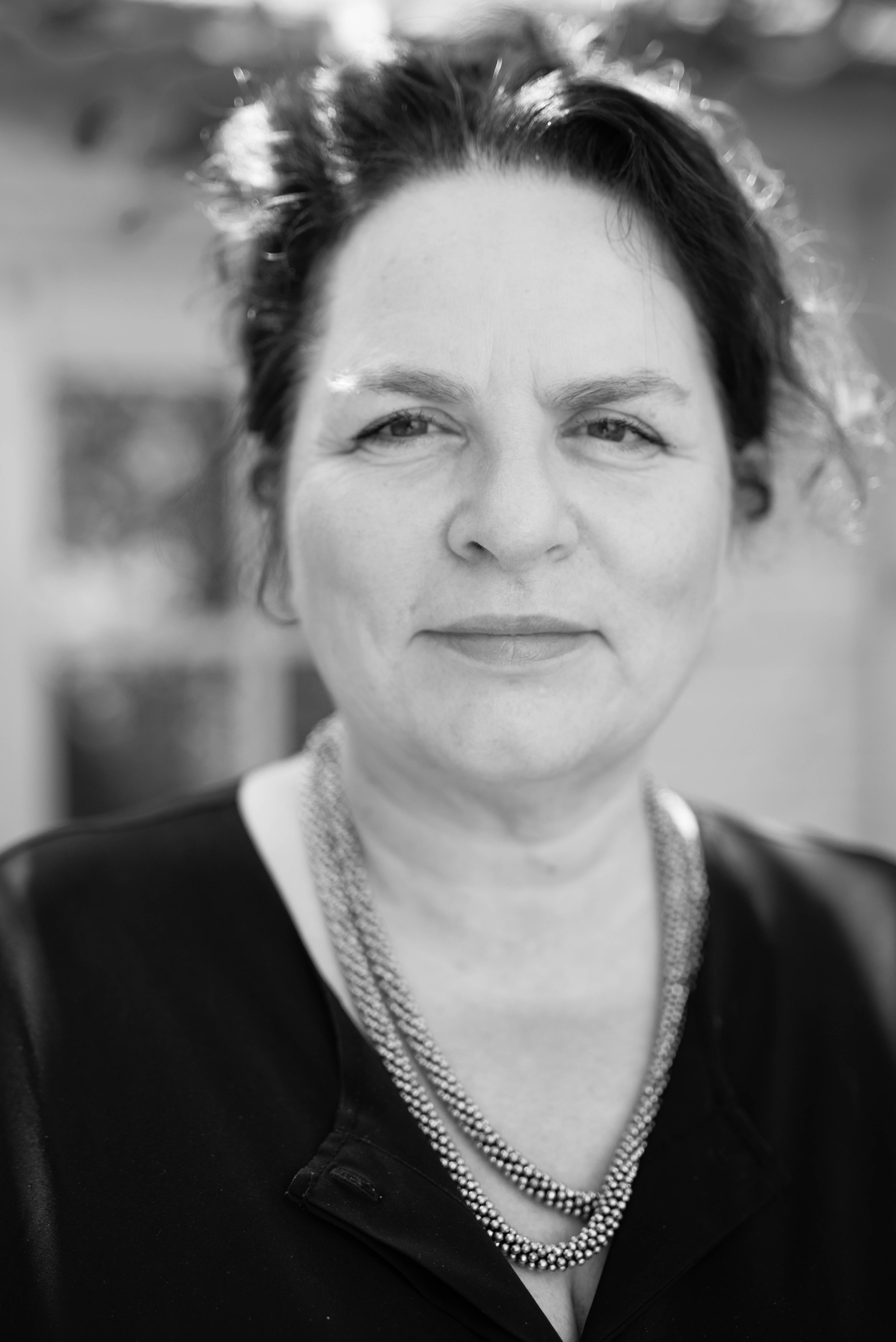
Marleen Stikker
Marleen Stikker is founder of Waag, a social organization and research institute for creative technologies and social innovation. The prolific advocate for free, honest, and inclusive technology, and honorary PhD, is also founder of The Digital City (1993), a group that provides free public access to the Internet in Amsterdam, and author of the book "Het Internet is Stuk" (The Internet is Broken).
Software Doldrums
Software Doldrums
We will talk about the dangers and shortcomings of relying on always-online proprietary platforms, through anecdotes from doing long-distance sailing across the Pacific ocean, away from internet connectivity and beyond the shores of the Western world. We will also talk about how we reimagined our software to encourage the reuse, repair and maintenance of existing hardware.
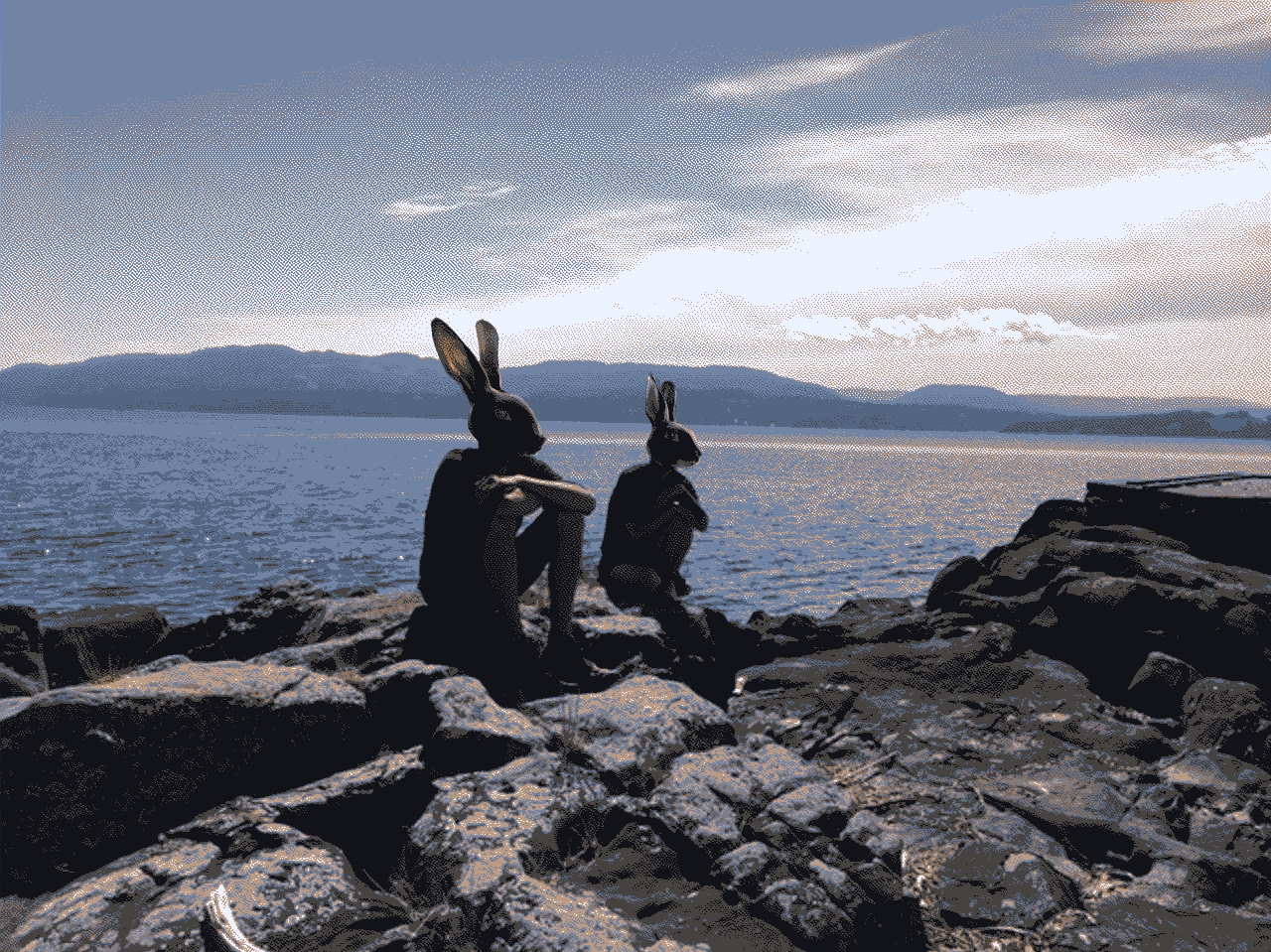
Hundred Rabbits
Hundred Rabbits is a small artist collective consisting of Rek (they), a writer and cartoonist, and Devine (they), a programmer, artist, and musician. They travel the globe together with their sailboat named "Pino" while creating and adapting software to fit their needs. They learned, with a lack of energy resources and Internet access, they needed to make adjustments to the way they were using their technology. Besides sharing their experiences about living on the water, they also document their use of various technologies and their art. In addition to blogs, cartoons, and music, they create and publish free (as in freedom) software projects.
Speakers
Building a Liberated Home - for myself and others
Building a Liberated Home - for myself and others
Building and living a free life isn't easy. Not only do we need to keep reminding ourselves about our reasons for choosing free/libre software, but also about being mindful when choosing the right hardware to run free software on. It's easy to run free software when we have complete control over our hardware, but when the hardware limits or controls what software can be run on it, it also eliminates our ability to choose free software.
Unless we choose our hardware carefully, we will slowly run out of places to run free software. Hence, the necessity to build a "liberated home".
When the software that defines and controls the device is proprietary, it eliminates our ability to repair or extend the device and renders the hardware unusable for a free software user.
This talk will detail methods, practices, advice and solutions for common technology requirements in a typical home. It will also attempt to offer suggestions on how we can help others after we've solved some of these problems for ourselves.
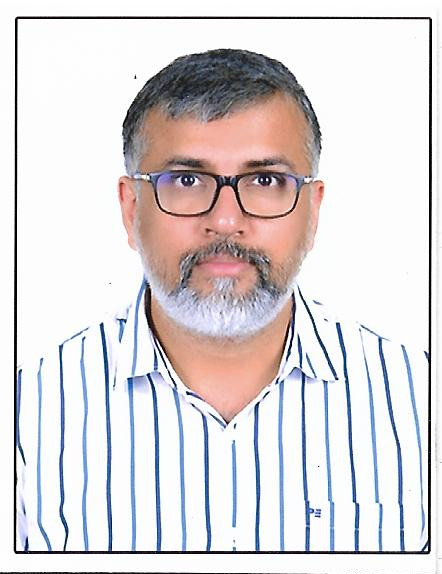
Abhas Abhinav
I describe myself as a hacker, entrepreneur and free software activist. I started using GNU/Linux exclusively in 1998 when I was a student and then started my first free software business - DeepRoot GNU/Linux - in 2000. Over the past 21 years, we have helped organizations of all sizes and sectors implement free software in various forms. The core idea has been that just the existence and awareness of free software is insufficient - unless someone can step in to offer support and services for it, many organizations would be unable to choose free software, or understand and appreciate its benefits.
I started a "liberated hardware business" in 2016 - Mostly Harmless - to build and sell hardware that would enable people to run free software in more places. I now operate an online shop - libretech.shop - to sell these devices with the promise that all devices sold there would be "ethical and hackable products which also offer convenience."
I am also a member of the board of Free Software Foundation of India (FSF-India) and participate in and contribute to various free software advocacy and education activities in India as a volunteer.
Survival of free software: Analyzing characteristics of free software in comparison to other software
Survival of free software: Analyzing characteristics of free software in comparison to other software
Proprietary software earns sufficient amounts due to its hidden behavior. While it snatches the freedom away from the user, it earns money for the developer and helps them survive. We discuss the characteristics of free software, different business models that may or may not be compatible with it and find solutions to making free software survive independently.

Sagar Acharya
Sagar Acharya is a contributor at Genode OS, an ex developer of Hyperbola OS. He currently lives in Mumbai, India, and manages his startup, DesignMan, an online platform where he enables simple product designers to roll their designs out to the market.
The state of software patents in 2022
The state of software patents in 2022
Software patents are legal instruments designed to curtail the freedom of developers for the sake of multinational companies' interests. Despite the efforts of the free software movement, it is evident that the threat of software patents persists. What is the state of software patents today, and what can we do to block their expanding dominance? This presentation will attempt to explain this complex topic in simple terms. You will also learn how to further fuel the efforts of the FSF's End Software Patents campaign.
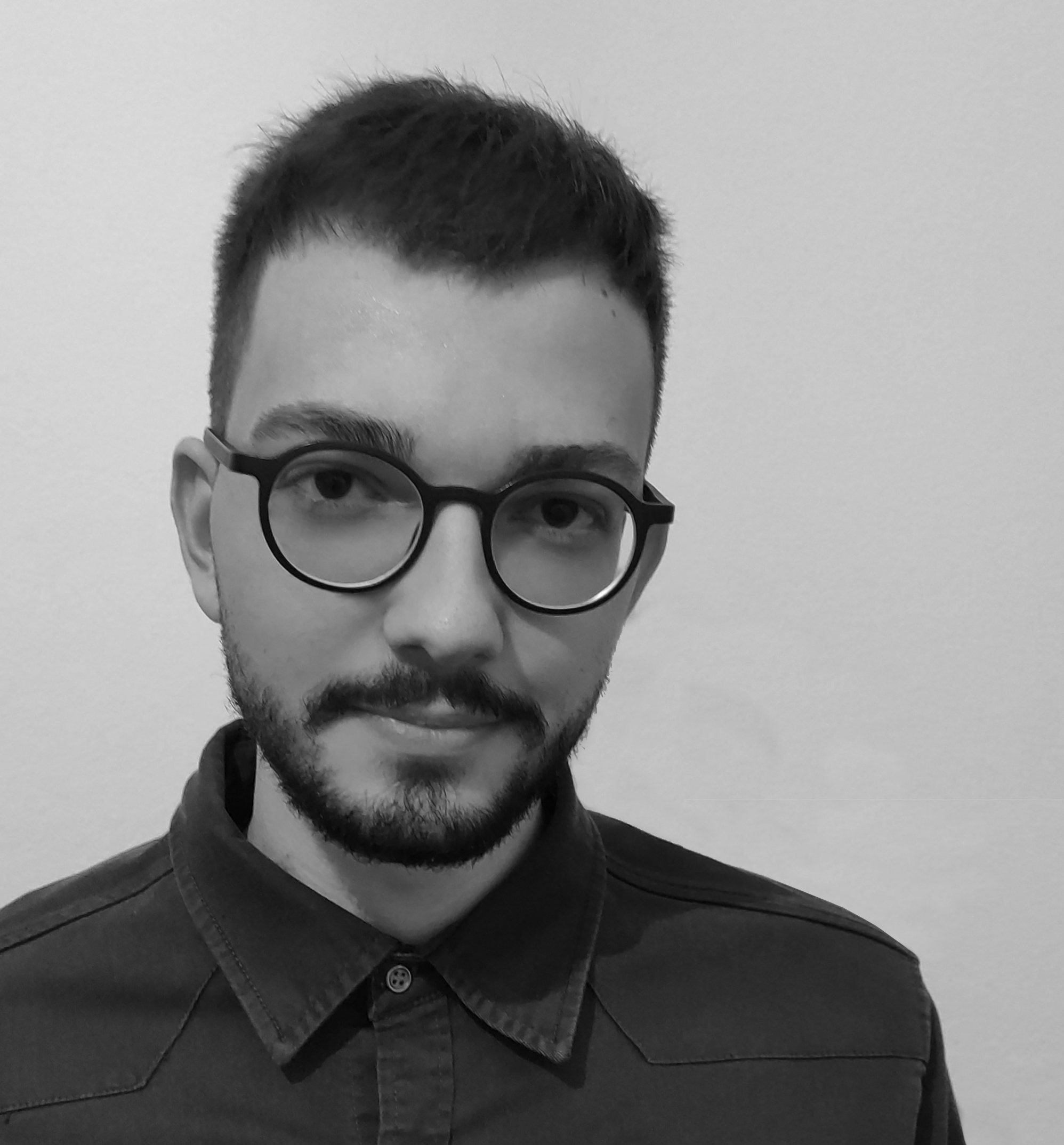
Panos Alevropoulos
Law School of Aristotle University of Thessaloniki. Erasmus Plus at Université de Rennes 1, Faculté de Droit et de Science Politique. Member of Aristotle University's Research Team on Digital Economy and Private Law (https://digec.law.auth.gr/en). Volunteer member of the FSF Licensing & Compliance Lab, End Software Patents Wiki admin, Certified by Creative Commons. Three publications in national legal journals.
- The privatization of free speech governance in the digital age: centralization and the prospects of decentralization
- The constitutional features of the European Union
- Freedom of speech in (European) constitutional jurisprudence (translation from French to Greek, original article written by Michel Verpeaux)
Fluent in Greek (native), English, and French.
The Net beyond the web
The Net beyond the web
The modern web is filled to the brim with complexity, no shortage of nonfree software, and malware. Many, many people have written and spoken at length on these issues and their implications and negative effects on users' freedom, privacy, and digital autonomy. With the advent of technologies like WebAssembly, the modern day Web browser has effectively become an operating system of its own, along with all the issues and complexities of operating systems and then some. Opening arbitrary websites with a typical Web browser amounts to downloading an executing [mostly nonfree] software on your machine. But is all of this complexity really necessary? Is all of this needed to achieve the web's original purpose, an information system for relaying documents (and now media)? What if there was a way to do away with all of these complexities and go back to the basics?
In this talk we will examine the Internet beyond the modern web, some possibilities of what that might look like with concrete examples from protocols like Gopher from time immemorial, and more recent experiments and reimaginations of it in today's world, such as Gemini and Spartan. The talk will give a brief tour of these protocols and their histories, what they have to offer, and why one might want to use them in the 21st century.

Amin Bandali
bandali is a free/libre software activist and computing scientist. Bandali is a GNU maintainer, Savannah hacker/admin, an assistant GNUisance of the GNU Project, and an FSF volunteer. Bandali also happens to be a GNU Emacs diehard who uses Emacs for just about every imaginable computing task, participates in its development, and is an organizer and sysadmin of the EmacsConf conference.
Building an ethical E-book
Building an ethical E-book
Some thoughts on my journey of building Nantucket E-books, an ethical, and freedom-respecting e-book platform, including ensuring compliance with the GNU LibreJS browser extension.
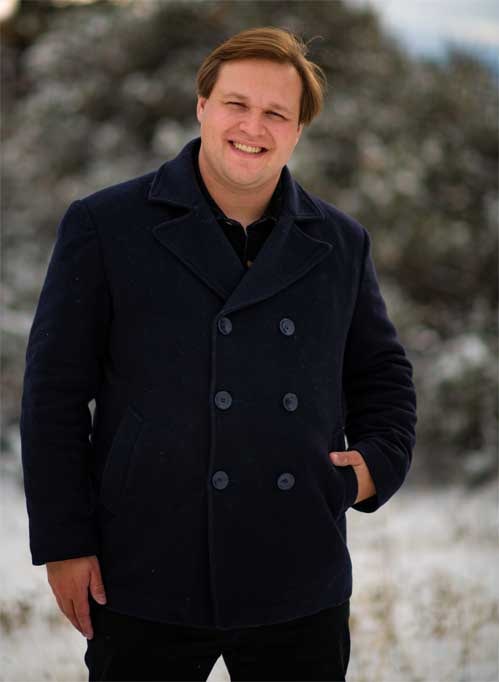
Nicholas Bernhard
Nicholas Bernhard is the developer of the Nantucket E-books platform, and the Shanty markup language for writing e-books. He is the author of the historical novel November in America, and the award-winning director of Blackstone's Equation: The Tim Masters Story.
Replicant: Struggle for independence
Replicant: Struggle for independence
Replicant is an FSF certified 100% free software Android distribution. Android is very different from GNU/Linux. While Android reuses the Linux kernel (sometimes with huge modifications), it uses almost no other components from GNU/Linux and a lot of the Android code was written from scratch.
Since its creation in 2010, most of the work in Replicant consisted of reusing an existing Android distribution, and replacing or avoiding the nonfree hardware abstraction libraries that were shipped by the distribution it reused.
The Replicant project has now changed focus and wants more independence from the device manufacturers and from the Android distributions it's based on.
In order to be accessible to people with less technical background, this talk will first explain the hardware architecture of smartphones and Android (and what is an hardware abstraction library) and will then talk about the directions taken by the Replicant project.
There will also be time for questions.

Denis Carikli
I'm one of the Replicant founders and developers. I'm a former developer of SHR (a GNU/Linux distribution for smartphones), and other related projects. I'm also a small Linux contributor. I was also involved in Coreboot and related projects but I don't have time anymore to contribute to it much.
You Wouldn't Hate Artificial Scarcity
You Wouldn't Hate Artificial Scarcity
So much of modern popular culture is locked inside streaming-only disservices that it can be difficult to know how to live without their proprietary Digital Restrictions Management (DRM) apps. However if you do a little digging and don't mind a lack of spectacle there's plenty of excellent alternative entertainment you can enjoy without resorting to DRM or piracy.
This talk will explore why DRM's such a thorny issue and what you can enjoy instead.
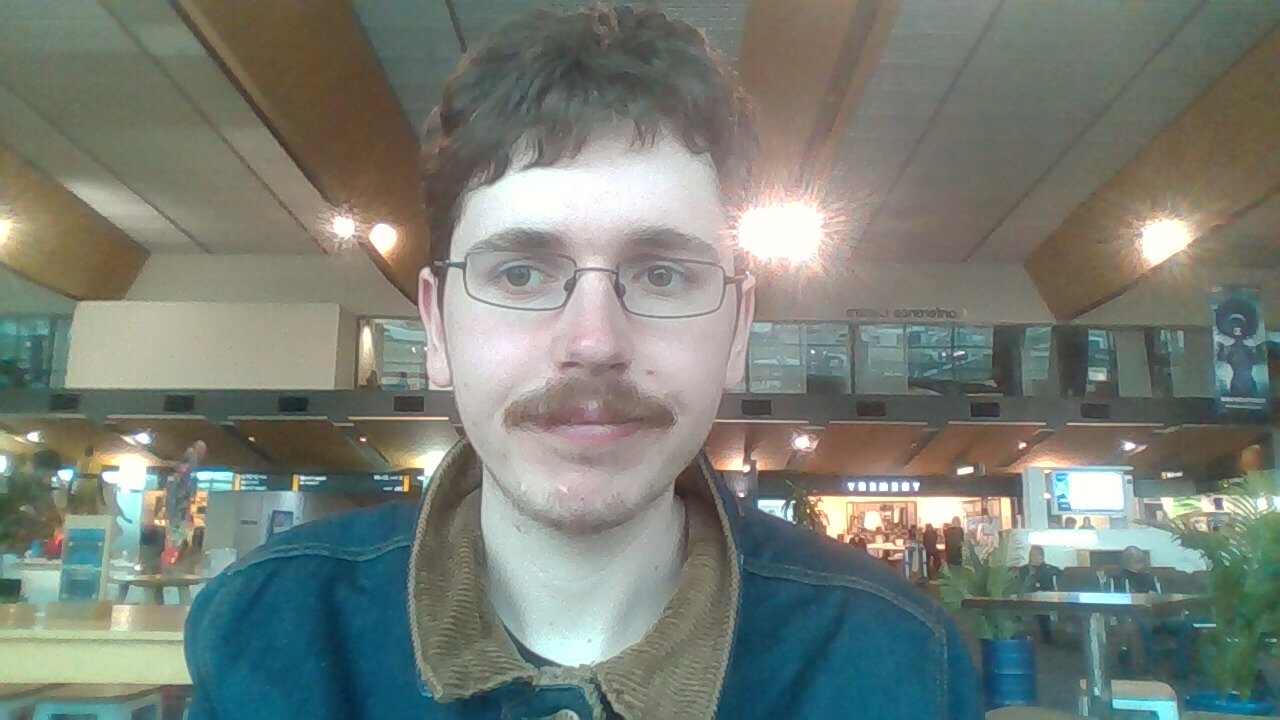
Adrian Cochrane
Adrian graduated from Victoria University of Wellington in 2017 with a degree in Computer Science. His education in computing began long before that, having learned his first programming language at age 10.
While he was studying at Victoria University, Adrian interned at Catalyst IT for an extended time where he worked on the KELP log file analytics/debugging project and Samba Windows-compatible file sharing project.
After graduating he successfully completed several contracts including ones for visualizing shared vocabularies with SKOS and a privacy-conscious blogging site. Additionally he completed a contract for NIWA to harvest WxS endpoints into GeoNetwork.
For his hobbies Adrian enjoys illustrating how software can be better through his personal projects, and is always keen for a game of Catan.
Distributing freedom: How package managers empower software users
Distributing freedom: How package managers empower software users
One of the defining features of free software distributions in past years has been package management. Package managers, allowing the installation and removal of software with a single action, are undeniably convenient!
However, as package managers have entered the public consciousness as app stores, some question whether free software has lost its edge compared to proprietary systems. The truth is that existing solutions are only the tip of the iceberg, and package management has much more to offer for enhancing user freedom.
It is time to go deeper and explore the many ways that advanced package management can help users control their devices with greater ease and flexibility.

Sebastian Crane
Sebastian Crane is an avid free software supporter who believes that open access to technology can help all facets of society. He is currently the Outreach Team co-chair for the SPDX Working Group, a project aiming to streamline free software licence compliance and supply chain security through rich and comprehensive package metadata.
Empowering community-oriented play with TRBot
Empowering community-oriented play with TRBot
This talk will present TRBot, free software that enables collaborative control of video games over the Internet - a concept started by the infamous Twitch Plays Pokémon in 2014.
In this presentation you will learn:
- The motivation and history of the project
- A technical overview of how the software works
- The impact TRBot has made on communities

Thomas Deeb
Thomas is a professional software engineer passionate about software freedom. He has worked in game development for over 6 years and chose to release his debut indie title as free software during his transition to computing freedom, which started in 2019. Thomas has made contributions to many other free software projects, including Cinnamon, Nemo, MonoGame, and RetroArch. Outside software development, Thomas's interests include yoga, hiking, and composing chiptune music.
The importance of student participation in the struggle for user freedom in society
The importance of student participation in the struggle for user freedom in society
User freedom is directly linked to a free education. Student mobilization and struggle for more freedom in the classroom, especially after the pandemic event, shows how the school community must move to show the dangers and disadvantages of surveillance inside and outside the classroom.
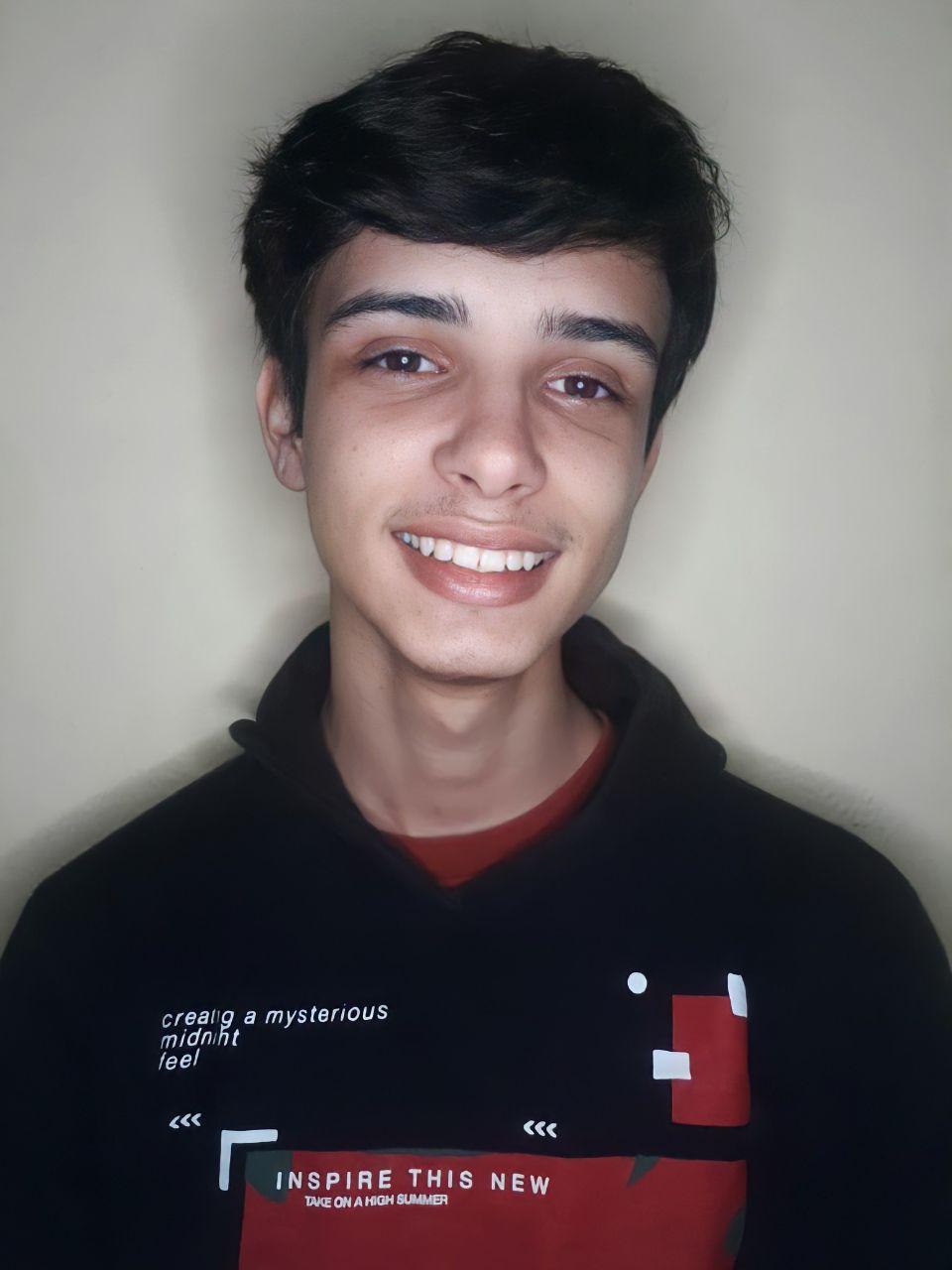
Kaio Duarte Costa
Director of Student Councils of the Collegiate Union of Minas Gerais (UCMG), Member of the Board of Follow-up and Social Control of FUNDEB (ConsFUNDEB-MG), Substitute Member of the Permanent State Forum on Education (FEPEMG), Member of the Public Committee of the National Association of Data Privacy Professionals (ANPPD), associated with the Brazilian Society for the Advancement of Science (SBPC) and the Brazilian Computer Society (SBC). Hackeractivist, student and student representative.
ANS coding replacing Huffman and AC - from introduction to patent issues
ANS coding replacing Huffman and AC - from introduction to patent issues
I will briefly introduce to ANS coding family, which in recent years is replacing Huffman and arithmetic coding in data compressors - currently used e.g. in Linux kernel, default DNA compression, products of Apple, Facebook, Google, and many others like JPEG XL bringing hope to finally replace JPEG after 30 years. While I and many others shared our work to make it free to use, ANS has attracted patent vultures. A few years ago there was unsuccessful attempt by Google, however, now USPTO has granted very general patent to Microsoft for ANS variant used e.g. in JPEG XL.
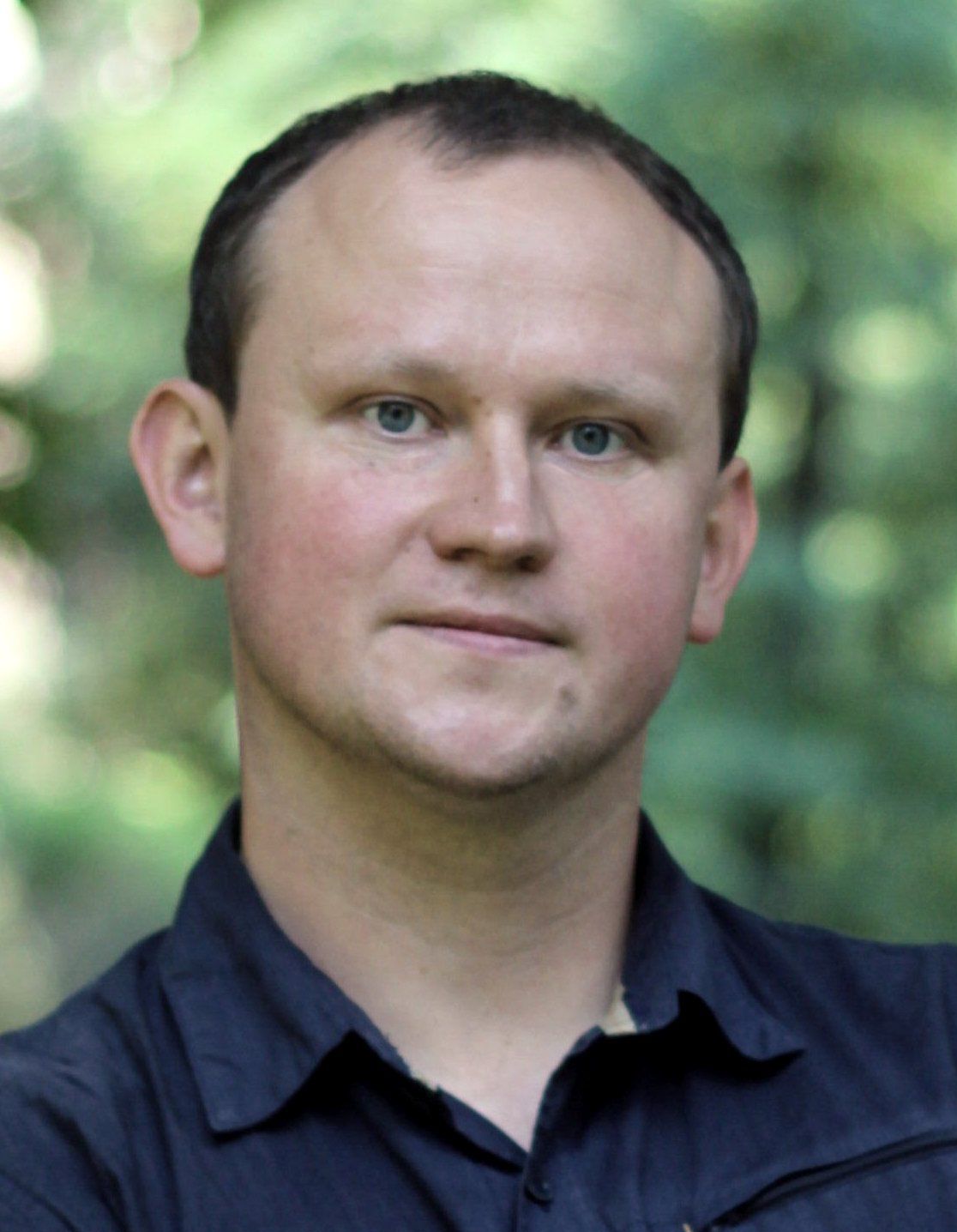
Jarek Duda
Jarek Duda received the M.Sc. degree in mathematics, the Ph.D. degree in computer science, and the Ph.D. degree in physics. He is currently an Assistant Professor with Jagiellonian University. He is mainly
focused on information theory and statistical analysis, and is known from introduction of asymmetric numeral systems (webpage: http://th.if.uj.edu.pl/~dudaj/" )
TZDB and some challenges of long data
TZDB and some challenges of long data
The Time Zone Database (TZDB) is the primary technology for civil timekeeping conventions. It contains the complete history of the world’s civil time since 1970, and copies of it reside in most of the planet’s cell phones and computers. It has been developed in the open with no use restrictions. TZDB is an example of “long data”: data intended to be used for a long time. Its main challenges come from version and downstream skew, scope and format disagreements, standardization, intellectual property disputes, institutional backing, and politics. I will describe some of the these challenges in TZDB’s evolution.
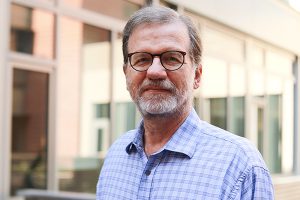
Paul Eggert
Paul R. Eggert is a senior lecturer in the UCLA Computer Science Dept., teaching mostly in the areas of software development and programming languages. He has contributed to several free software projects, including Autoconf, Automake, Bison, GCC, the GNU C Library, GNU Coreutils, GNU Diff, GNU Emacs, GNU Grep, GNU M4, GNU Patch, GNU Tar, Gnulib, Gzip, and RCS. He has worked on the Time Zone Database since 1992, and currently serves as the Internet Engineering Steering Group’s Primary Coordinator for TZDB.
A free toolchain from molecular vibrations to detailed combustion: How (some) physical chemists and chemical engineers have escaped proprietary software
A free toolchain from molecular vibrations to detailed combustion: How (some) physical chemists and chemical engineers have escaped proprietary software
Despite having previously been dominated by commercial, nonfree software, physical chemistry and chemical engineering research are increasingly performed with free software applications.
Further, it is now possible to carry out the full scale of relevant computations, from the quantum scale to the macroscopic, i.e. from theory-based electronic structure calculations of individual molecules and chemical reactions to simulations of chemical reactors and systems comprising hundreds or thousands of species and reactions.
We highlight a toolchain covering this entire span which our research group presently utilizes and contributes to, including Psi4, the Reaction Mechanism Generator, the Automatic Rate Calculator, the Theoretical Chemical Kinetics Database, and Cantera.
In the presentation, we focus on the capabilities and integration of the software and how it provides superior usability and efficiency compared to proprietary offers, and we also provide case studies in its use and development.
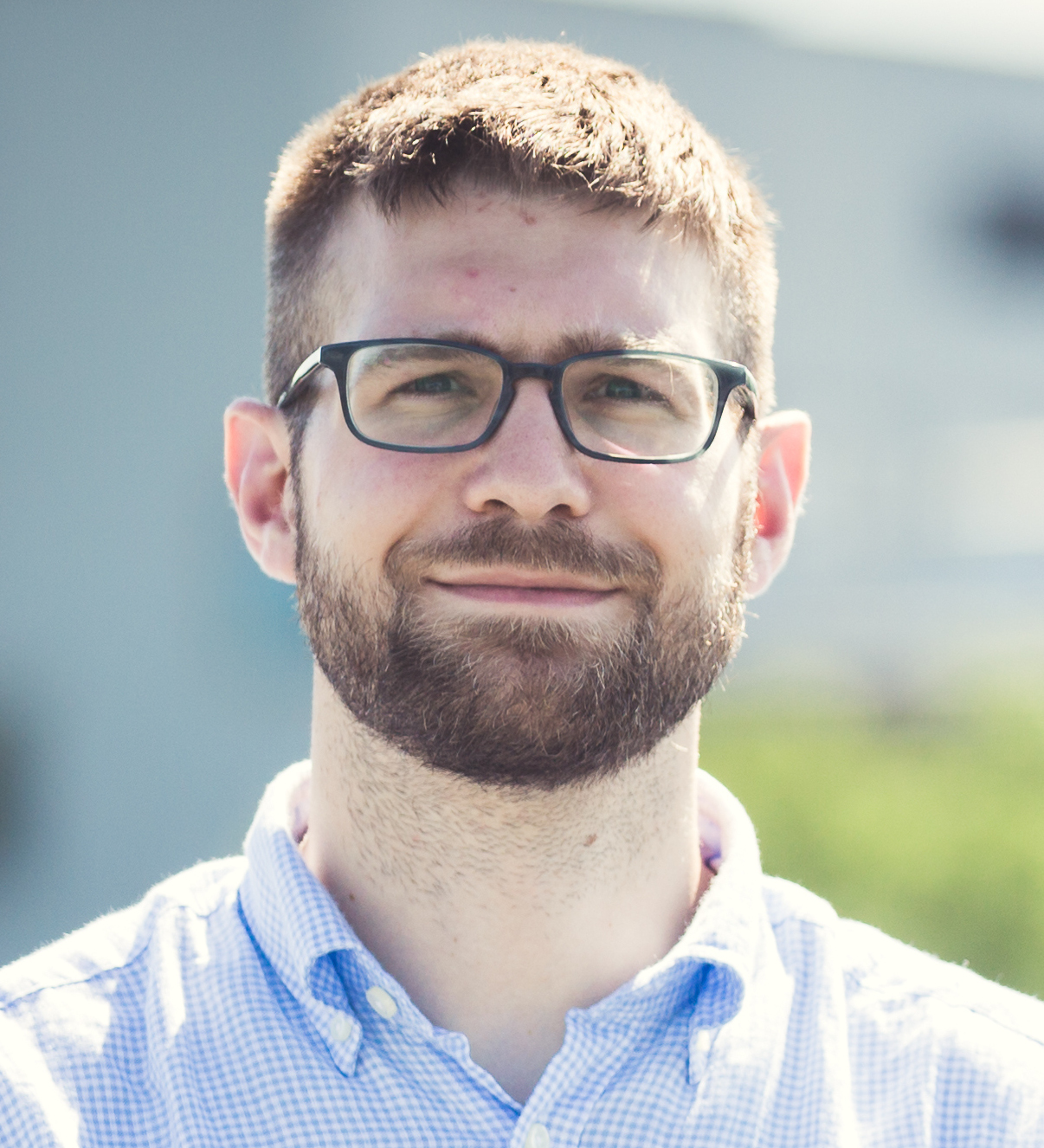
Mark Fuller
Mark Fuller and Kfir Kaplan are both members of the Kinetics and Chemical Technology laboratory under Prof. Alon Dana at the Technion in Israel. Both Mark and Kfir are active in developing and contributing to free, libre software projects within the scientific community including Cantera, the Reaction Mechanism Generator, and the Automatic Rate Calculator.
Mark holds a PhD in chemical engineering and has used GNU/Linux and free software for his academic and professional career over the last 15+ years.His focus is combustion chemistry and past work has included batteries, fuel cells, and heat transfer.
Kfir is currently a fourth-year undergraduate student.
Federated social media in the age of social distancing
Federated social media in the age of social distancing
Social media has become a staple of daily life, playing a mayor role in the lives of millions. However, it is highly centralized around a reduced number of platforms that trap their users. Over the years, alternative platforms, specifications and protocols have emerged, proposing a decentralized and federated approach to social media. Therefore, for my bachelor’s degree thesis, I decided to perform research on the matter.
I will try to show the results of this research. A brief history on the rise, fall, and rise (?) of decentralized social media, what the specialized literature says about user retention, critical views on the matter, and, most importantly, what the actual social media users have to say about it.
If you are interested in platforms like Mastodon or GNU social, the future of the Internet, or just think that Facebook is plain evil, this might just interest you.

Ángel García Menéndez
My name is Ángel García Menéndez. I am a software engineer from northern Spain, who graduated this very year. I have been a free software advocate for many years, and a student associate member of the FSF since 2018.
Apart from software engineering, I am also interested in social sciences, and I try to take a more human look to technology and the effect it has on people.
Retracing digital freedom as pattern learning for life
Retracing digital freedom as pattern learning for life
This interactive talk explores learning components that can be used to promote digital freedom. The wicked problem (c.f. Rittel 1973) of dark patterns and digital tracking will be countered by a pattern-based design approach to generating 'surprising' traces (Goodyear & Retalis 2010, Tunstall 2019, Ricoeur 1988, Stiegler 2018). This approach will be illustrated through examples of learning components that can be used in a variety of contexts, not just in institutionalized learning.
Greta Goetz
Greta Goetz, PhD, is an Assistant Professor in the English Department at the Faculty of Philology, University of Belgrade. Her research is concerned with developing the potential of project-/problem-based networked learning and epistemic fluency to restore intercultural rifts such as the science and technology-humanities divide, the meanings and limitations of “digital literacy,” and the problem of receptivity in intercultural dialogue. Her work is informed by her East-West background and some of it can be found at https://gretzuni.com.
From GNU Emacs to code.gouv.fr
From GNU Emacs to code.gouv.fr
I would like to explore and expose the history of my motivations as a free software hacktivist, especially what progressively led me to dedicate more time and energy to support free software in the public sector.
By explaining my approach, I hope many free software supporters will understand how critical it is to contribute to current efforts of the public sector, and I will suggest a few practical tips on how to do so in everyday life.
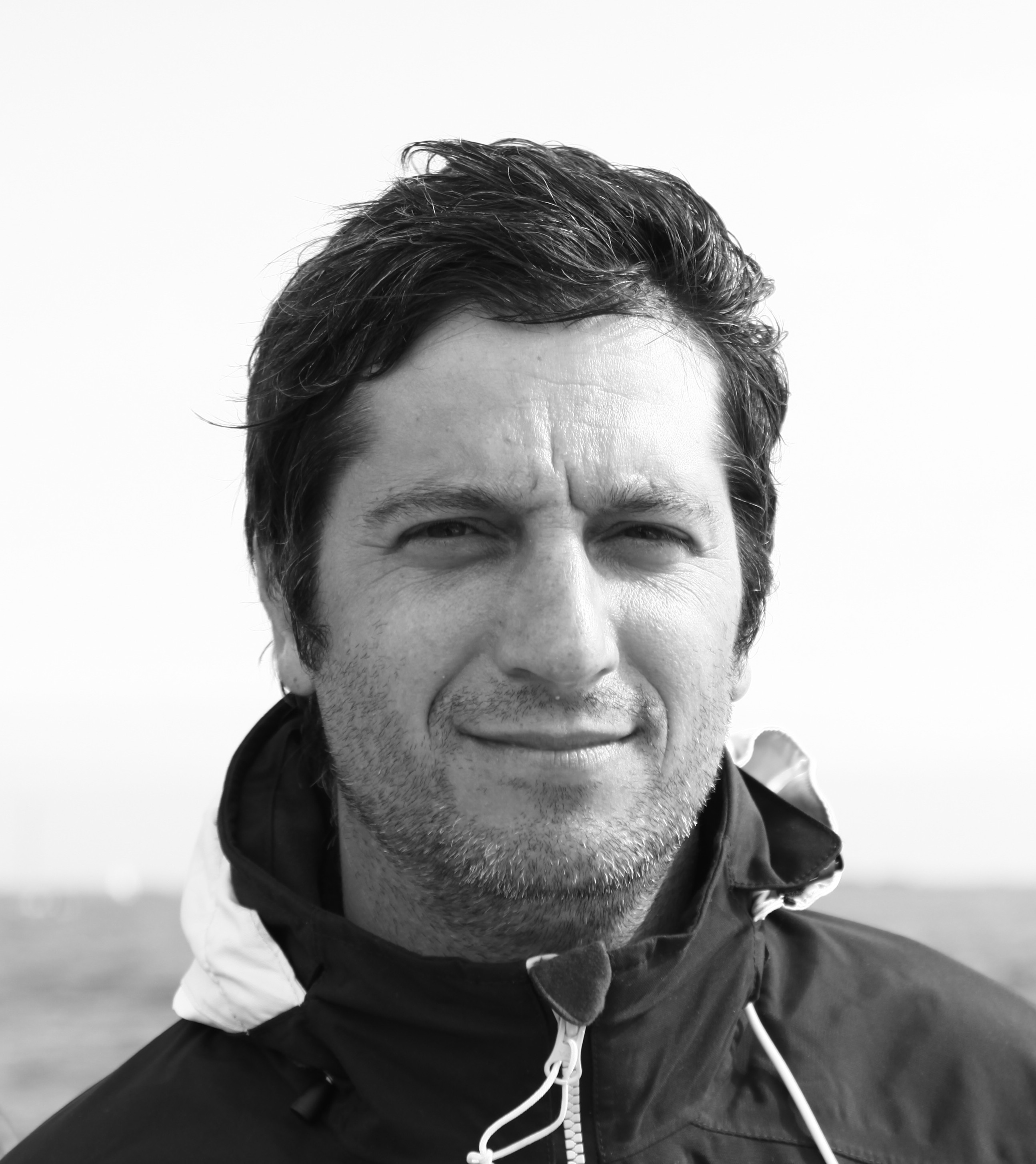
Bastien Guerry
Bastien Guerry is the free software officer for the French public administration. He first studied philosophy and cognitive sciences. He got interested in the free software movement in the late 90's and taught himself how to program by contributing to GNU Emacs. In 2008, he got involved in the One Laptop Per Child initiative and was recruited by Wikimedia France as its first employee in 2010. In 2017, he joined the "Public Interest Entrepreneurs" program, led by Etalab, the French department for open data. There he discovered the challenges faced by public agencies when it comes to maintaining and enhancing resilient IT infrastructures, recruiting tech profiles, rationalizing the use of free software and the contributions made by the public administration to the larger free software ecosystem.
The media ecology of source code access
The media ecology of source code access
Drawing on a vast array of sources -- including the works of Marshall McLuhan, Neil Postman, Jean Baudrillard, Sherry Turkle, Olia Lialina, Don Norman, Kenneth Gergen, Alan Kay -- I propose that the history of the GNU General Public License, the GNU Project, and the Free Software Foundation are ripe for integration into a study of the arts and humanities which overcomes decades of corporate and commercial propaganda situating the subject within a groundless, shifting post-modern and post-human landscape lorded over by technological shamans and “geniuses” like Steve Jobs, Bill Gates, Mark Zuckerberg, etc.
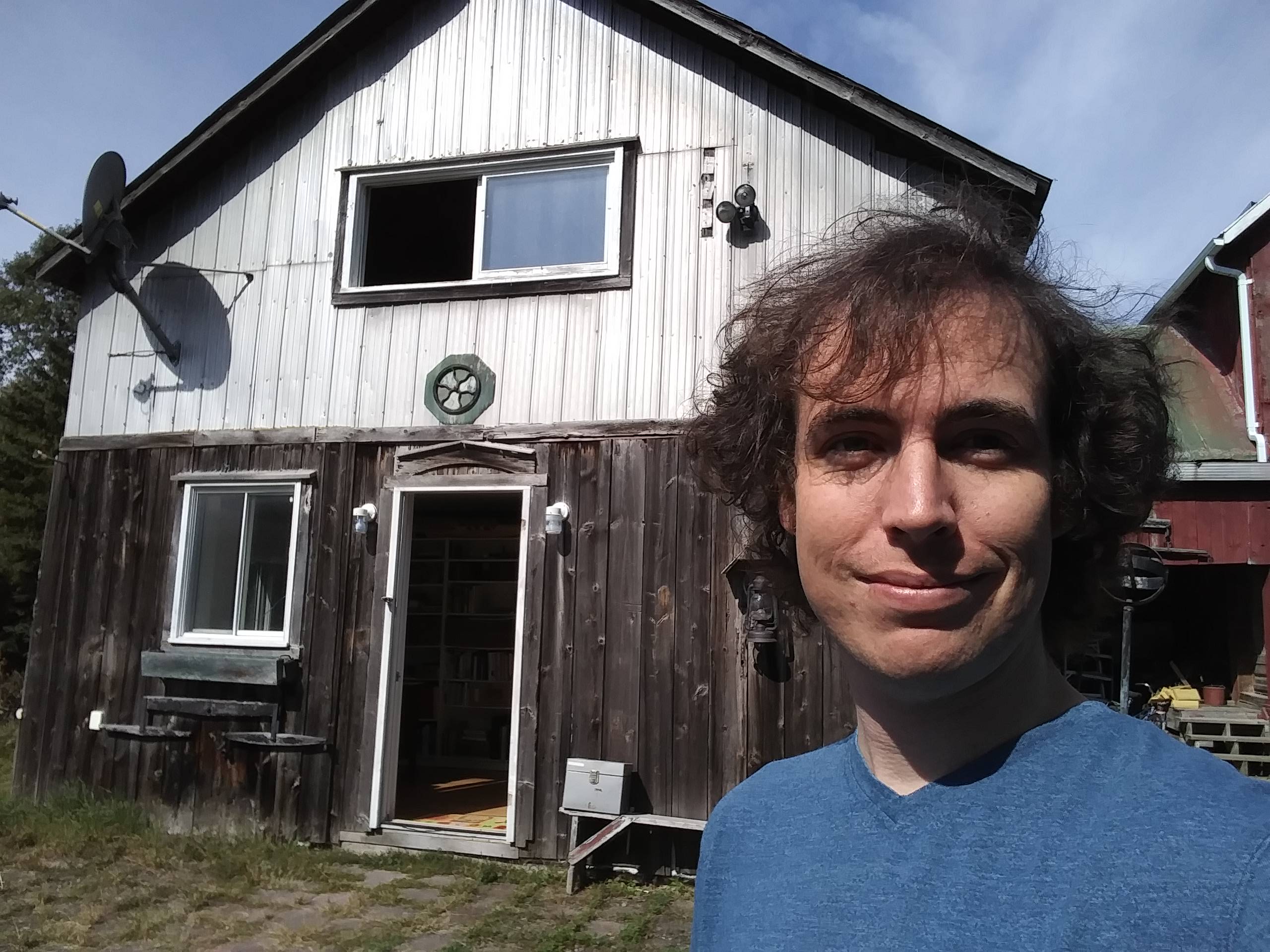
Clinton Ignatov
I have been using free software for nearly 20 years, beginning with my teenage forays into compiling Gentoo on my AMD K7 PC. Since then I've developed a strong interest in understanding the social impact of proprietary software through my deep readings of the work of Marshall McLuhan.
Design in the command line: Recipes for tasty outcomes
Design in the command line: Recipes for tasty outcomes
Designers brought up on conventional tools end up missing out on the arcane powers of the command line. Pipes, shells, scripts, converters and parsers can be an integral part of a graphic designer's workflow, requiring a shift in expectations from our tools. Likewise, seasoned shell hackers might appreciate ways to connect their flows to create graphic outputs.
As designers with 10+ years experience with free and libre software, we've gone through a good amount of hacks and experiments to go beyond GUIs when creating visible outcomes, and would like to share some pages out of our cookbook. Some of our proposed dishes are instant print-ready zines, typographic animation for video credits, font showcases, generative vector graphics and shell mannerisms for quick batch tasks. We'll be making the most of exotic ingredients like ImageMagick, PDFtk, FFmpeg, Makefiles or Git, with a dash of Python and Bash scripting to bind flavors together.
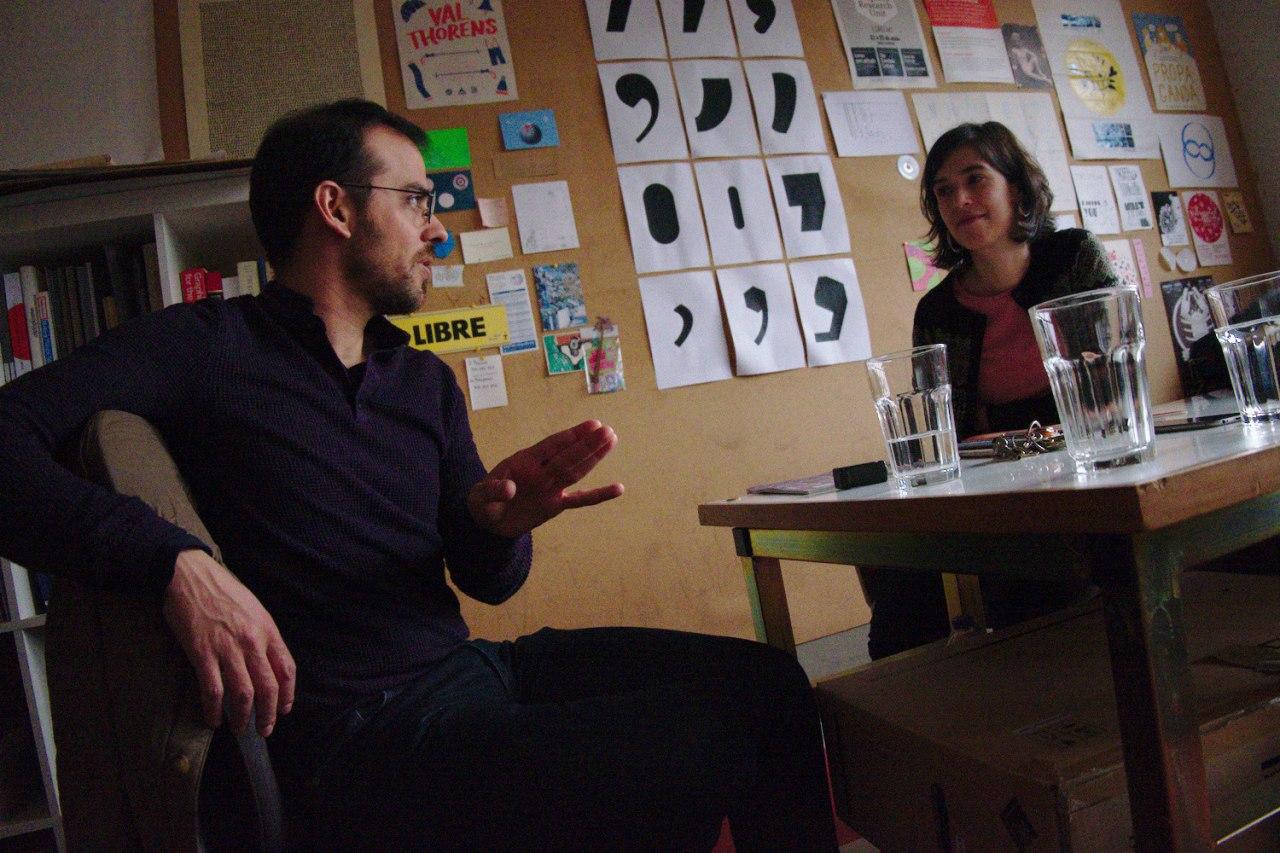
Manufactura Independente
Manufactura Independente is a research studio for design and graphic communication focused on free software, free culture and critical engagement with design tools. Born in 2010 and based in Porto, Portugal, it is the testing laboratory and playground of Ana Isabel Carvalho and Ricardo Lafuente for their experiments in crossing design, free culture, media art, typography, data explorations and hardware archaeology. They've been actively and critically exploring these connections through their work in Web development, print design, playful data visualisation, custom software and engagement with non-conventional tools, as well as holding several type design workshops focused on alternative (and often quirky) creative workflows.
Web site: https://manufacturaindependente.org
Why we feel it is a liberation experience to take part in the Open Hardware PowerPC Notebook project
Why we feel it is a liberation experience to take part in the Open Hardware PowerPC Notebook project
The design of a PowerPC based notebook from scratch is quite a challenge for a group of hobbyists as we are. Making it fully compliant with the Open Hardware principles and based on GNU/Linux is even more complicated. As an example, the availability of fully free software drivers must be carefully checked for every electronic component. This speech will illustrate the reasons and motivations that made us undertake this challenge, and what we are learning from it.
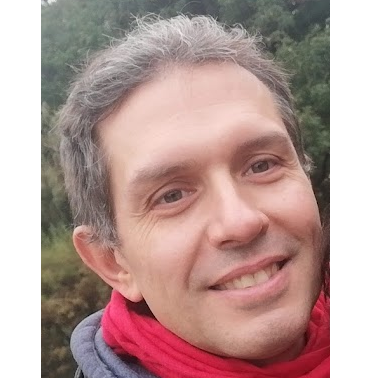
Roberto Innocenti
Among the founders of the project Open Hardware PowerPC Notebook, presenter and ambassador of the project. President of the association Power Progress Community which deals with the promotion and dissemination of free software and open hardware.
Taking back the Web with Haketilo
Taking back the Web with Haketilo
This presentation is about Haketilo, a browser extension that facilitates replacing Web sites' original bloated, privacy-invading, nonfree Javascript with free, community and user-controlled scripts.
In this presentation, Haketilo developer Nicholas Johnson summarizes the problems with the modern Web and the various approaches taken to address them. He discusses Haketilo's strategy for fixing the Web as compared to other Web extensions, its use cases, anticipated social hurdles, future plans, and the goal of creating a new, simplified Web standard where user freedom is guaranteed.
This presentation also serves as a call to arms. Developers experienced in HTML, CSS, or Javascript are encouraged to join the fight by submitting libre replacement scripts for their favorite Web sites. For Haketilo to achieve its goals, it needs many contributors.
1. The link for the Haketilo project wiki is https://hydrillabugs.koszko.org/projects/haketilo/wiki
2. As displayed on the Web site, it is also funded by nlnet.
3. Haketilo is working on becoming a GNU package.
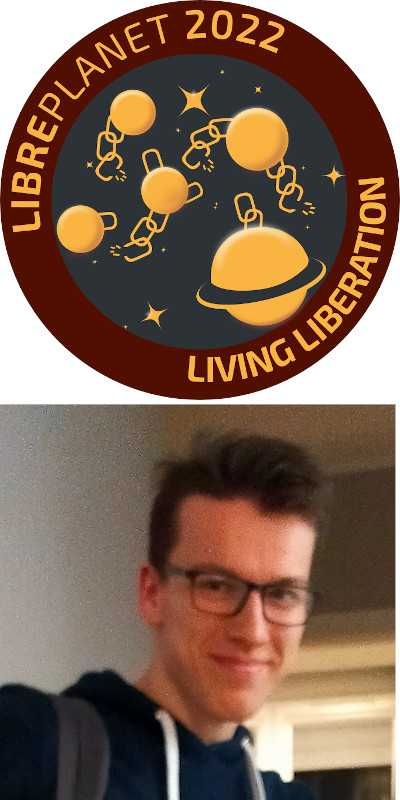
Nicholas Johnson
I consider myself a philosopher above all, but I'm also a blogger, free software evangelist, activist, and Haketilo developer. I started fighting for free software in higher education. Unwilling to work a corporate job, I now work on Haketilo. I use my online journal to promote software freedom, privacy, minimalism, and personal introspection. I have many strong opinions. You can find my personal homepage at https://nicksphere.ch. If you have Gemini, you can find me at gemini://nicksphere.ch.
Wojciech Kosior will be joining Nicholas for the Q&A section of this talk.
Wojciech Kosior first learned about free software over five years ago. In 2021, the story of his fight to graduate without running proprietary videoconferencing software was published by the GNU Project. After graduating, he devoted his programming skills to the development of the Haketilo browser extension, which aims to give users back control over Web browsing. Besides being a free software hacker, he is a practicing Catholic and a guy who enjoys doing back flips and taking bike trips.
Baby steps to freedom
Baby steps to freedom
Teaching others about free software is challenging and often requires continual encouragement to convince another person to appreciate the ideals of the free software movement. This can be a time-consuming process; however, William has a simple strategy to get others onboard faster without the need for lengthy explanations of freedom vs. proprietary comparisons. The solution: baby steps! Start small by recommending a person to use just one free software application instead of a proprietary application they are using currently.
To do this properly, you need to be able to effectively -- and quickly -- explain the what, why, and how to get them to use that free software application. Because we're taking a "baby steps" approach, you may need to temporarily sacrifice other worthy goals, such as anti-DRM advocacy. However, once a person switches to the free software application, you can then help them take more baby steps (e.g., through anti-DRM campaigning).
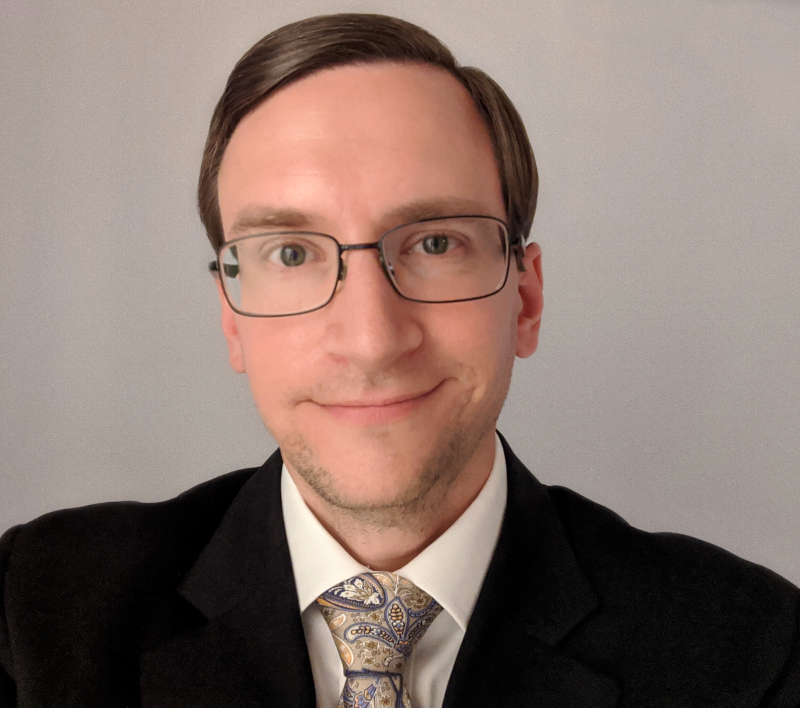
William Liggett
William is a software engineer, Assistant Professor, & ethical hacker. He is also working on writing a book titled Hands-On Cybersecurity Programming with Java. Additionally, he develops in Python, JavaScript, PHP, and HTML5/CSS3. William has also obtained many "cool points" for getting more people to care about and use free software! And he has awesome dad-jokes that you don't want to miss!
GNU poke, the free extensible editor for structured binary data
GNU poke, the free extensible editor for structured binary data
GNU poke is an interactive editor for binary data. Not limited to editing basic entities such as bits and bytes, it provides a full-fledged procedural, interactive programming language designed to describe data structures and to operate on them. Once a user has defined a structure for binary data (usually matching some file format) she can search, inspect, create, shuffle and modify abstract entities such as ELF relocations, MP3 tags, DWARF expressions, partition table entries, and so on, with primitives resembling simple editing of bitsmand bytes. The program comes with a library of already written descriptions (or "pickles" in poke parlance) for many binary formats.
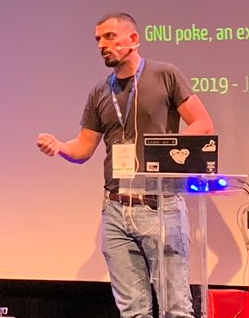
José Marchesi
José E. Marchesi is a GNU hacker and maintainer. Currently employed by
Oracle as the Tech Lead of their Toolchain/Compilers team.
Why we all need ethical technology and Web hosting
Why we all need ethical technology and Web hosting
There is recent news about another incident at the Web host—GoDaddy
concerning WordPress sites being compromised with a backdoor. We all
need to know more about our Web hosts…Agaric talks about Ethical web
hosting and free software, why we need it and how to get it!
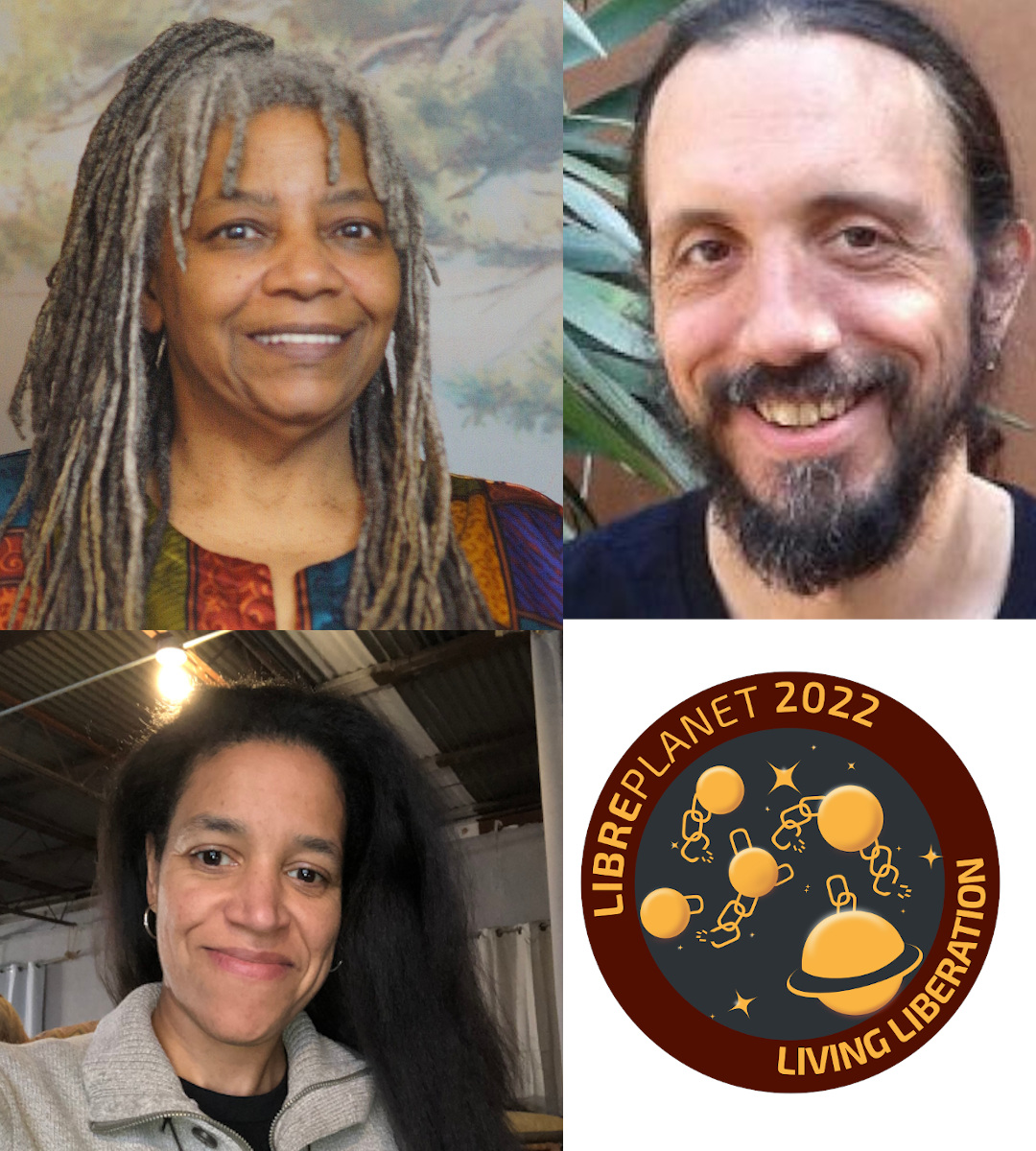
Micky Metts
Micky is involved in the “free software for community building” movement and the Platform Cooperativism movement. She helps Agaric's work contribute back to these movements. She also handles some administrative tasks, public outreach, and support as part of the team. She is the host of a BigBlueButton chat server and has built CommunityBridge in an effort to unite networks and movements with a safer platform to host events and meetings. Presenting options for alternatives to corporate proprietary software is her goal.
This talk will be co-presented by Chris Thompson, Melissa Bingham, and Keegan Rankin
Melissa is a movement technologist who is passionate about disrupting the status quo of existing popular technology offerings by helping people become conscious technology users and adopt more free and open source technologies and services. She is launching her own business in data privacy and security while continuing to work on her passion projects as part of a nonprofit focused on farmer citizenship and wholistic wellness as well as an unschooling cooperative.
Revitalizing Usenet
Revitalizing Usenet
Usenet is a worldwide online discussion network that was established in 1980, a decade before the World Wide Web. Unlike Web forums, control of Usenet is not centralized, but is rather distributed across an open federation of independent service providers. This makes the system transparent, robust, resistant to censorship, and most importantly, respectful of users' digital freedoms.
This talk is presented on behalf of the recently reconstituted Big-8 Management Board, the committee that administers Usenet's original discussion hierarchies. I will (re)introduce Usenet, relate its history, and explain how this venerable but still lively network has much to offer over modern-day discussion forums and social media platforms.
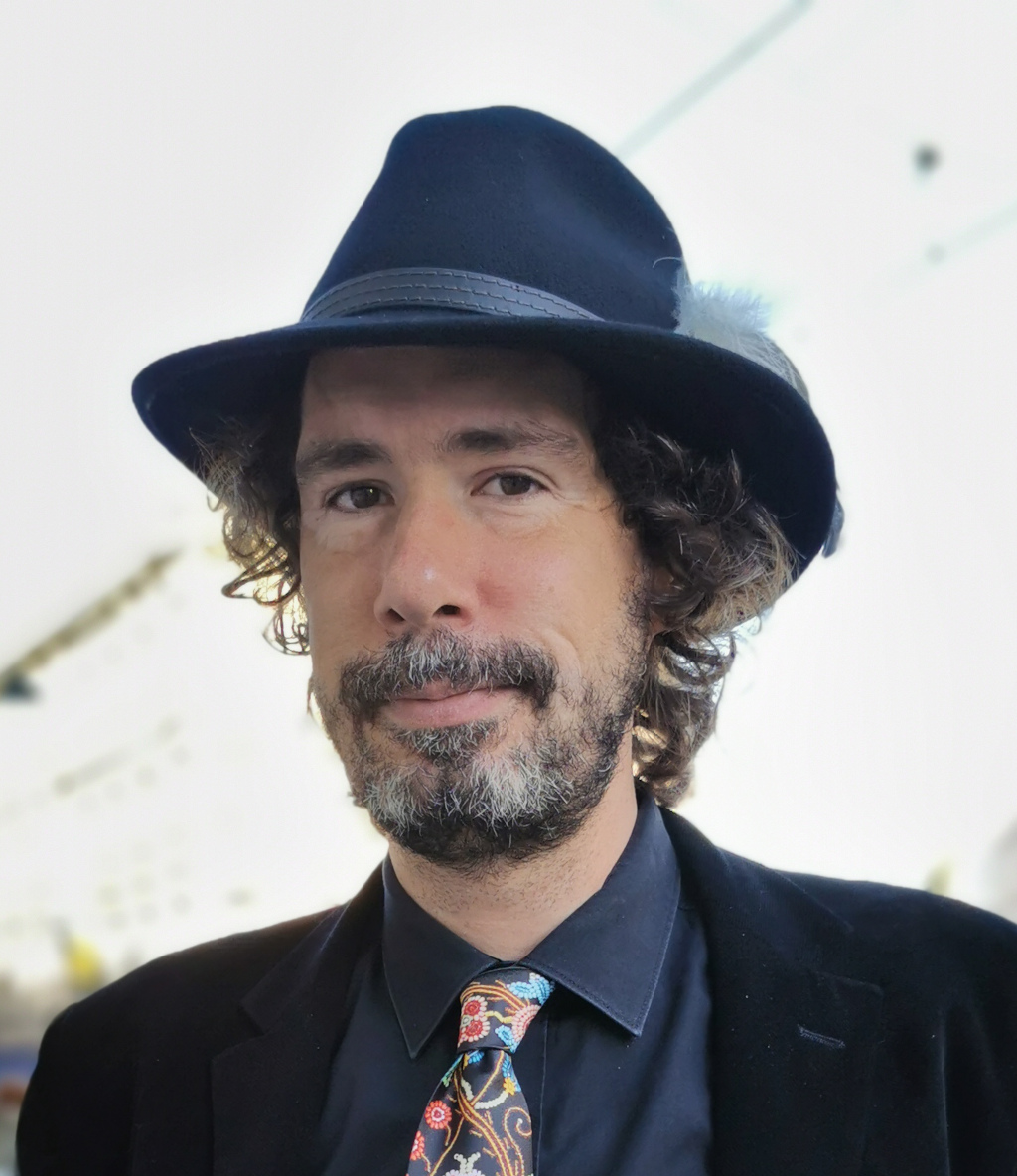
Tristan Miller
Tristan Miller is a research scientist at the Austrian Research Institute for Artificial Intelligence and a member of Usenet’s Big-8 Management Board. He (co-)maintains several free software packages, including the generic preprocessor GPP and GNU’s moderation tool, STUMP.
Sxmo: Freedom on mobile devices through simplicity and hackability
Sxmo: Freedom on mobile devices through simplicity and hackability
Proprietary smartphone platforms today are a duopoly (Google's Android and Apple's iOS) that takes away user freedom. Unfortunately, in many relationships today, one is expected to have a smartphone and consequently surrender their freedoms to one of these proprietary software vendors. Sxmo is a simple free software mobile interface that you can hack to fit your needs. It encourages the use of free software throughout with postmarketOS and Alpine Linux. This presentation will go over the system and new developments.
Anjandev Momi
Anjan Momi is an Electrical and Computer Engineering MAsc. student at the University of Toronto. In his free time, he likes to hack on and improve free software.
Web site: https://momi.ca/
Easy, secure and private information transfer with magic-wormhole
Easy, secure and private information transfer with magic-wormhole
File transfer between computers is considered by many as a solved problem. However in practice, people end up using third party servers, insecure programs, do tricks like emailing to themselves to access their own files from another computer. In some cases, they need to know IP addresses, account names and passwords to other computers. Here we look at a secure way to transfer information which uses a cryptography protocol called SPAKE2.
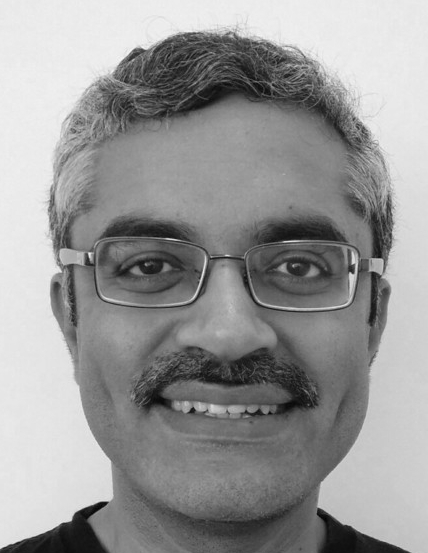
Ramakrishnan Muthukrishnan
Ramakrishnan (Ram) is a programmer for the past 22 years and has contributed to several GNU projects in bits and pieces. He works for a Berlin based company called Least Authority. In his free time, he loves tinkering with electronics and radio and holds an amateur radio license with callsign VU3RDD.
GNU Jami - How it works and how to get your friends and family to use it.
GNU Jami - How it works and how to get your friends and family to use it.
In this talk I will discuss how GNU Jami works and how it is different from other proprietary and free software solutions. Then I will explain how you can convince people you know to use it.
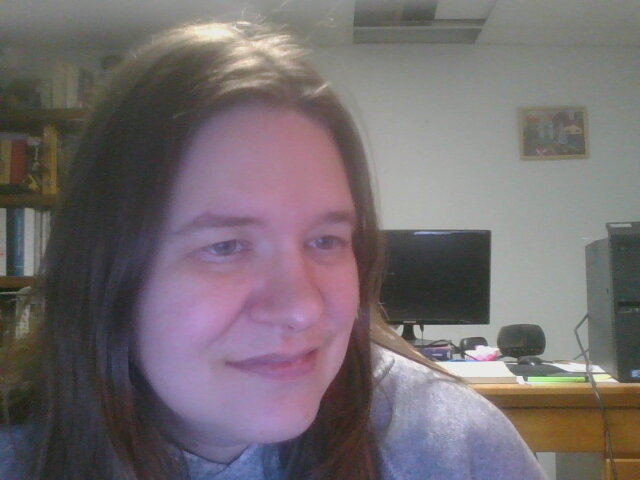
Lori Nagel
Lori has been a freedom respecting software and free culture activist since 2005.
Living liberated: Zero-to-hero
Living liberated: Zero-to-hero
In a world in which we are surrounded by proprietary surveillance hardware and software, it's now called resistance to live in liberty. Not only the device manufacturers, but also people around us are forcing us to use proprietary software. Within these circumstances, we are trying to liberate every single device that we are using one by one. For one, we can free personal devices by setting up a home server (which is obviously running on free/libre hardware), we can host personal Web sites and run online services by ourselves. In this session, we will share our experiences on this process, discuss the benefits and the costs of this lifestyle, and share brief suggestions to attendees who want to liberate and self-host their tech.
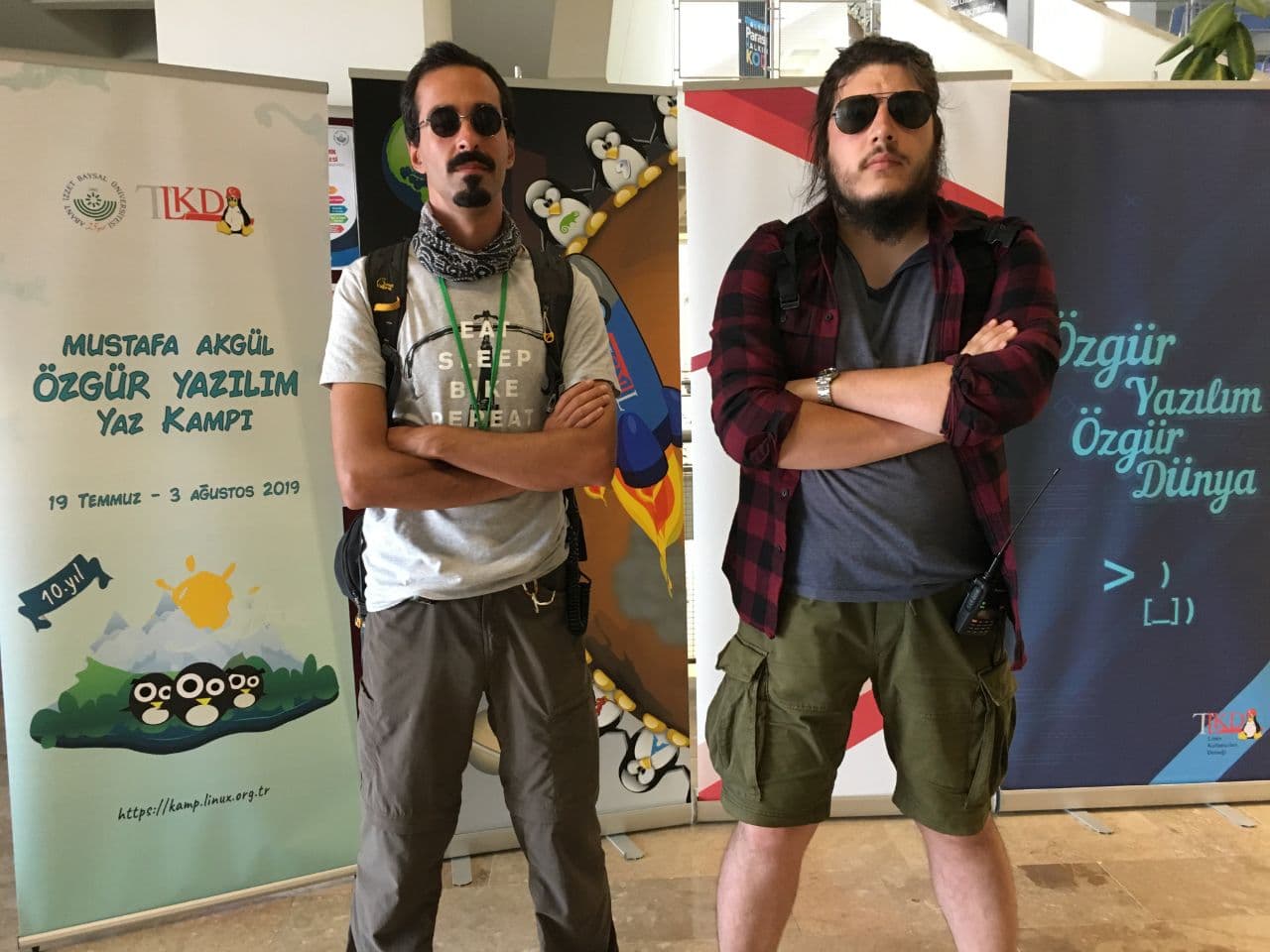
Özcan Oğuz
Özcan Oğuz is the president of the Free Software Association (Özgür Yazılım Derneği) in Turkey. Ze started using computers at two, in 1999. In 2007, with the Pardus project, ze first encountered the
free software philosophy and has been using free software exclusively in zis devices ever since. Ze graduated from Kadıköy Anadolu High School and Boğaziçi University. In 2017, ze founded Hackerspace Istanbul in Kadıköy, İstanbul. Ze has worked in turn as a publisher, a journalist, and an instructor for GNU/Linux system administration at Mustafa Akgül Free Software Camps. Ze is currently working as a software developer.
Free software game restoration II
Free software game restoration II
Technology continues to change since the first talk on free software game restoration. Changes in libraries and languages break games. Games slip from distributions as they no longer run. Web sites disappear causing the source code to be hard to find or lost altogether. This talk returns with more games restored to working state.
Watch Free software game restoration part I from 2020's LibrePlanet.

Dennis Payne
Dennis Payne is a free software game developer in his spare time. He has started Bt Builder and Troll Bridge, and maintains several other games he has stumbled across. "Open Game Source" is a series of articles about his game development efforts. Recently he has been developing a free software game achievement system.
The LibreVR Project
The LibreVR Project
Unfortunately many VR games are nonfree software that only runs on Windows or the Oculus Quest. As an owner of a Talos II, I want to play Libre VR games, so I started porting existing free software such as the SlimeVR-Server to POSIX and Monado. This was the beginning of the LibreVR Project.
Then I discovered the V-Sekai game which uses the Godot engine and the Meowality - CrossLink NX mixed reality hardware. I began porting Godot 4 to the POWER9 and thought about running the Libre-SOC gateware on the CrossLink NX FPGA.
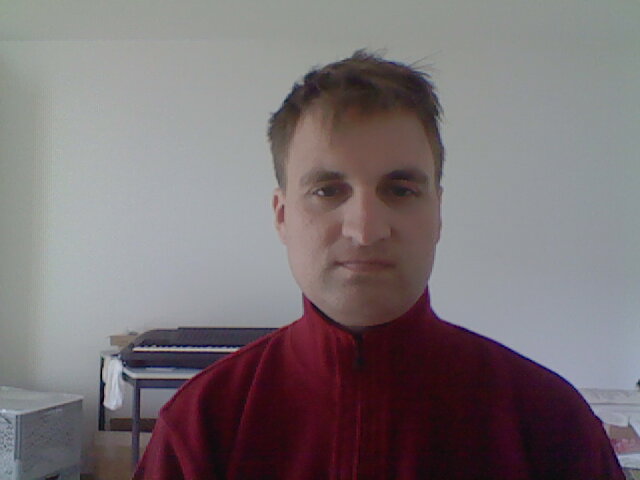
Tobias Platen
I am a libre software engineer living in Göttigen, Germany. I have been using libre-distros of GNU/Linux on Respects Your Freedom (RYF) certified hardware for many years. In 2019 I became a contributor to the Libre-SOC project. I'm also a libre music producer and GNU Lilypond user, as well the author of the QTAU DAW.
Software Doldrums
Software Doldrums
We will talk about the dangers and shortcomings of relying on always-online proprietary platforms, through anecdotes from doing long-distance sailing across the Pacific ocean, away from internet connectivity and beyond the shores of the Western world. We will also talk about how we reimagined our software to encourage the reuse, repair and maintenance of existing hardware.

Hundred Rabbits
Hundred Rabbits is a small artist collective consisting of Rek (they), a writer and cartoonist, and Devine (they), a programmer, artist, and musician. They travel the globe together with their sailboat named "Pino" while creating and adapting software to fit their needs. They learned, with a lack of energy resources and Internet access, they needed to make adjustments to the way they were using their technology. Besides sharing their experiences about living on the water, they also document their use of various technologies and their art. In addition to blogs, cartoons, and music, they create and publish free (as in freedom) software projects.
Hacking my brain: Free virtual reality implementations and their potential for therapeutic use
Hacking my brain: Free virtual reality implementations and their potential for therapeutic use
An introductory dive into the state of the art of Virtual Reality and video game making tools in the free software world, and their potential as a tool for treatment of "lazy eye" and other visual conditions.
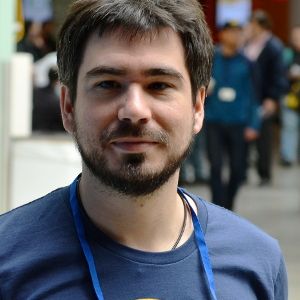
Rubén Rodríguez Pérez
Spaniard, software engineer, photographer, GNU hacker, guitar player, ape descendant. Rubén started his career developing free software for research centers and universities, then founded the Trisquel GNU/Linux distribution project and other nonprofits. He has contributed to the freedom and privacy oriented Web tools GNU IceCat, GNU LibreJS and JShelter, and has worked in the One Laptop Per Child program and as a senior systems administrator and CTO of the Free Software Foundation. He likes dogs and paragliding, and dislikes writing about himself.
Living federation
Living federation
What if a website that you use everyday suddenly makes a change that you are not comfortable with? You either put up with it or stop using it. But what if there was another server of the same service that you could simply switch to? Like your Internet's ISP? That would be cool, right? Federated server software makes such kind of decentralization possible, allowing users across different independent instances to communicate with each other. A lot of services that we commonly use in our daily lives have FOSS alternatives that support federation. Many are already using them and you should too if you aren't already. Let's have glance at some of the privacy-respecting options that we can use instead of those offered by Big-Tech.

Julin S
/Publishing well-formed Python packages/ at PyCon India 2020: https://www.youtube.com/watch?v=EAtYleEk0ig
Reducing Internet address waste: The IPv4 unicast extensions project
Reducing Internet address waste: The IPv4 unicast extensions project
The classic version of the Internet Protocol, IPv4, supports only about 4.2 billion of the numeric addresses used to identify computers.
The Internet's success means we've now run out of new addresses. While we wait for more adoption of IPv6, there's huge demand for IPv4 addresses, especially from public Web services and their hosts. Old address blocks have been resold for millions of dollars, with prices approaching $50 per address.
Standards from the 1980s reserved several hundred million addresses for "future use" and other purposes, which are now going to waste. Reversing this is an involved task; software and devices have often deliberately rejected any use of reserved addresses.
The IPv4 Unicast Extensions Project is proposing software and standards changes to eventually make those reserved addresses usable. Some of our changes have been accepted in systems including GNU/Linux and FreeBSD. This presentation will describe what we've done and what still needs to happen.
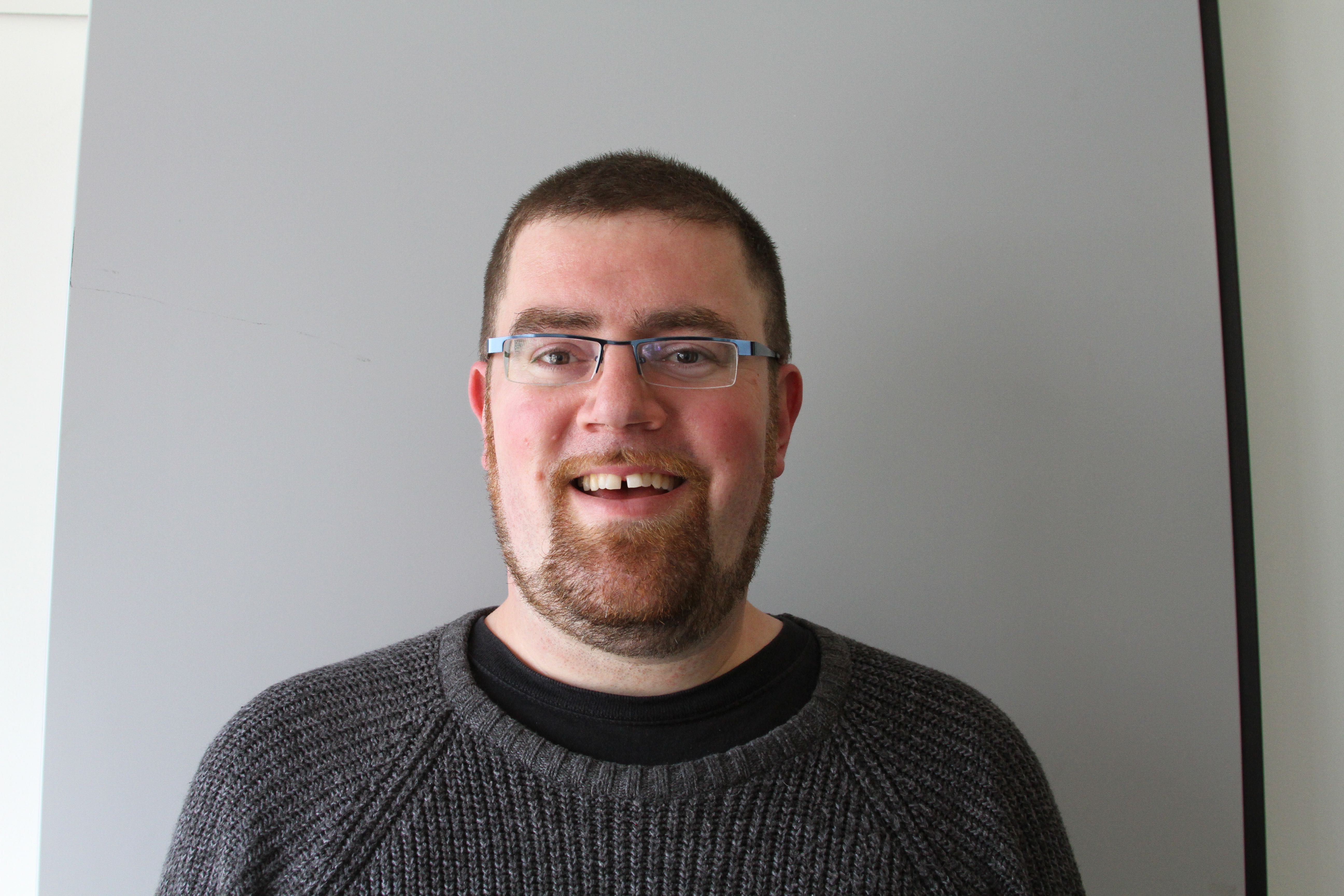
Seth Schoen
Seth Schoen is a consultant living in San Francisco.
He was the first Staff Technologist at the Electronic Frontier Foundation (EFF) and helped develop the Let's Encrypt certificate authority. At EFF, he also researched topics like printer tracking dots, packet spoofing by ISPs, and computer memory forensics. He has testified before several courts and Federal agencies. Previously, he was the lead developer of the LNX-BBC distribution.
Living in freedom with GNU Emacs
Living in freedom with GNU Emacs
An overview of how GNU Emacs allows us to live in freedom both in moral and practical terms, as seen from the perspective of a non-programmer. Specific use cases are generalized into philosophical insights such as the ethos of sharing know-how and the community aspect of freedom.

Protesilaos Stavrou
Protesilaos (aka "Prot") is a philosopher with a background in the
humanities. He used to work in politics, including as a parliamentary assistant at the European Parliament. He switched to free software in 2016 on the premise that it empowered the end user to operate the computer on their own terms. Since 2019, he is a power user of GNU Emacs. Prot is the author/maintainer of the modus-themes project: a pair of highly accessible themes which are built into Emacs. Prot is a tinkerer who has learnt how to program by using the free/libre tools at his disposal.
Reclaiming public values in the internet
Reclaiming public values in the internet
In her keynote, Marleen will explain how Waag’s model of the Public Stack) proposes an alternative way of designing and developing technology. Public Stack advocates for a design of technology with the interests of the public in mind. She will show how the program has been developed over the course of the last four years, and how Waag and its partners apply the model and spread free software awareness in various sectors, including health, media, and government. From building the capacities of citizens, developing critical maker education and the development of data commons and ethical tech like Fairphone.

Marleen Stikker
Marleen Stikker is founder of Waag, a social organization and research institute for creative technologies and social innovation. The prolific advocate for free, honest, and inclusive technology, and honorary PhD, is also founder of The Digital City (1993), a group that provides free public access to the Internet in Amsterdam, and author of the book "Het Internet is Stuk" (The Internet is Broken).
Lightning Talks
Lightning Talks
Lightning talks are five-minute presentations given by conference attendees on free software topics they're passionate about.

Lightning Talks
Participate: Have your five-minute talk streamed at LibrePlanet 2022: Living Liberation.
Toward the moral objectivity of GNU
Toward the moral objectivity of GNU
This presentation will argue for the moral necessity of the GNU Project's "four software freedoms." This piece will be predominantly philosophical, and will not contain much technical computer information.
I will argue for the universality of the four freedoms among humans. I will do this by explaining how the GNU four freedoms are justified in a compelling picture of human nature.
Darwin revolutionized our understanding of zoology in the 19th century. In his magnum opus, On the Origin of the Species, he demonstrated the process of "natural selection."
Sadly, much of his teachings have become distorted by a conception of natural selection, inspired by Herbert Spencer. Darwin did not merely admit to competitive behavior environmental adaptations. He also held that organisms are able to cooperate through "mutual aid."
In this piece, I will explain how software freedom suits human nature better than the destructive and competitive nature of that which is proprietary.
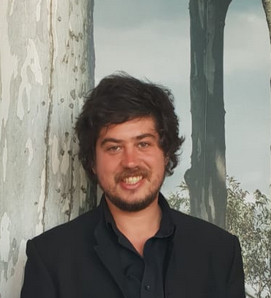
Blair Vidakovich
~vidak is a community organizer and software freedom advocate from Perth, Western Australia. This presentation was written on Emacs 27.2, running on EXWM on the Guix system.
~vidak has subscribed to the GNU philosophy of computer freedom for many years. He advocates for a deepening and broadening of our culture incessantly; wherever and whenever he can (:
Repair is not a crime: An update from the front line of the Right to Repair fight
Repair is not a crime: An update from the front line of the Right to Repair fight
Right to Repair now has support from the Biden administration and the Federal Trade Commission (FTC), and progress is being made in Europe, Australia, and Canada. Hear from the rabble-rouser in chief on the latest in the fight for hardware independence and the ongoing effort to legalize everything from tractor to ventilator repair.
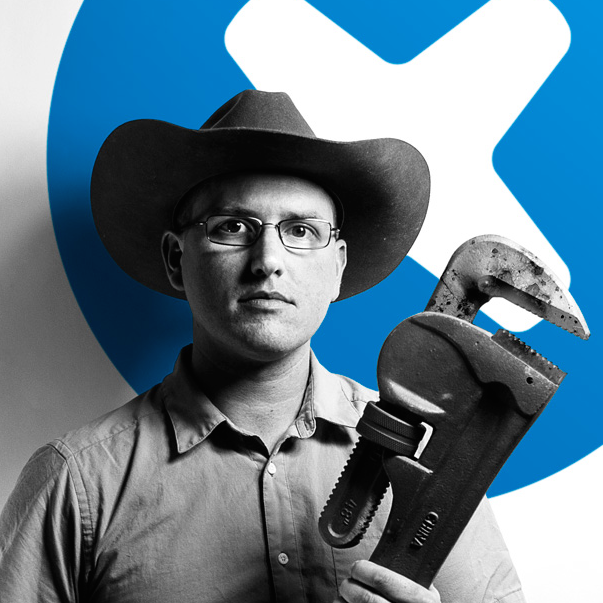
Kyle Wiens
Kyle Wiens is the CEO of iFixit, the free repair manual. He’s dedicated his life to defeating the second law of thermodynamics, a battle fought in the courtroom as often as in the workshop. The Right to Repair campaign has, so far, successfully legalized cell phone unlocking and tractor repair.
Current challenges for the OpenPGP keyserver network. Is there a way forward?
Current challenges for the OpenPGP keyserver network. Is there a way forward?
Many free projects use OpenPGP encryption or signatures for various important tasks, like defining membership, authenticating participation, asserting identity over a vote, etc. The Web-of-Trust upon which its operation is based is a model many of us hold dear, allowing for a decentralized way to assign trust to the identity of a given person.
But both the Web-of-Trust model and the software that serves as a basis for the above mentioned uses are at risk due to attacks on the key distribution protocol (not on the software itself!)
With this talk, I will try to bring awareness to this situation, to some possible mitigations, and present some proposals to allow for the decentralized model to continue to thrive towards the future.
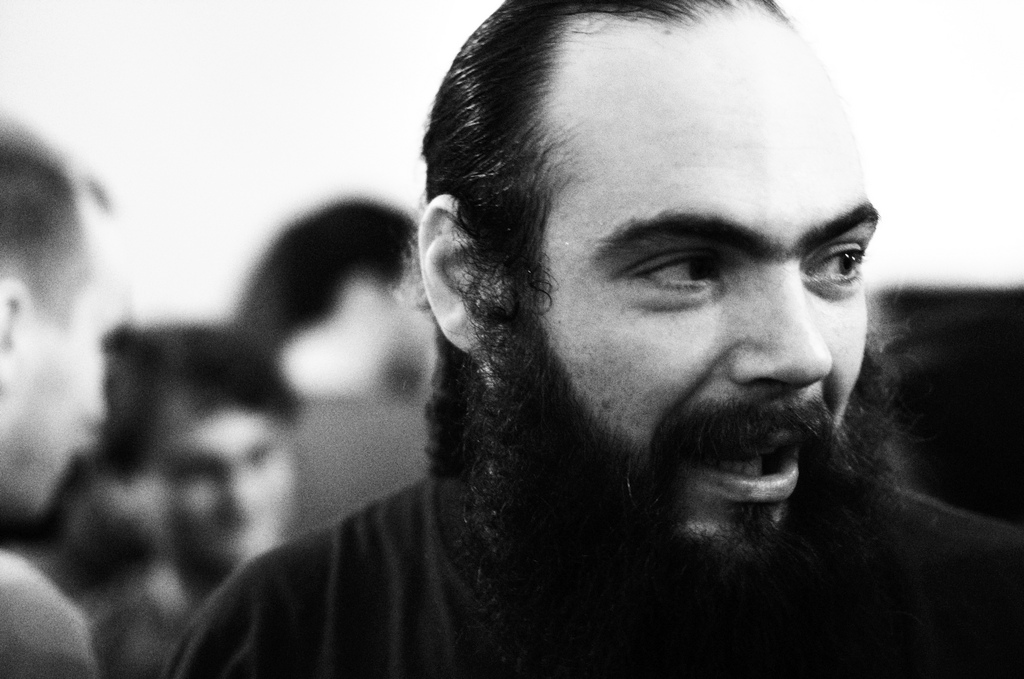
Gunnar Wolf
I have been a free software user and promoter since 1995, Debian developer since 2003, and since 2009 am part of the Debian keyring-maintainers group. I have done other keyring-wide studies, one of which was presented at LibrePlanet 2018.
I am currently enrolled in a PhD program, and the talk I am giving is related to my research.
Why our economy fails public goods like free software
Why our economy fails public goods like free software
There are four categories of economic goods: private goods, club goods, commons, and public goods. Free software programs are public goods, and they don't fit our market economy which relies on scarcity and exclusion.
This talk will lay out a new way to understand the economic dilemmas with public goods. It will discuss how the typical language and models of economics work against the goals of software freedom. With this foundation, we can start working on the challenge of how to build a new economy based on sharing and abundance.
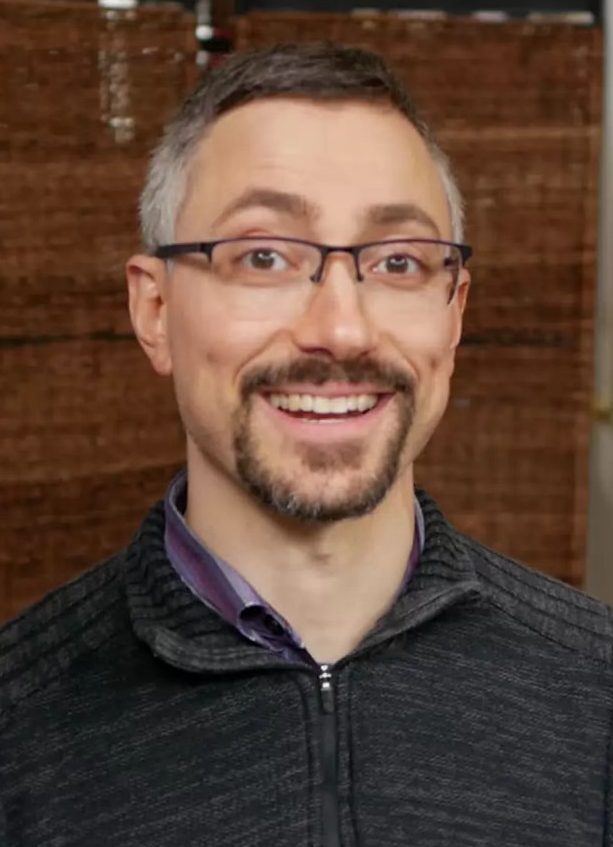
Aaron Wolf
Aaron Wolf is co-founder of Snowdrift.coop and a long-time free software and free culture activist. In his day job as an independent music teacher, he pushes his students to use free/libre tools and release their music under free licenses.
![[ LibrePlanet 2022 ]](/2022/assets/img/logo.svg)